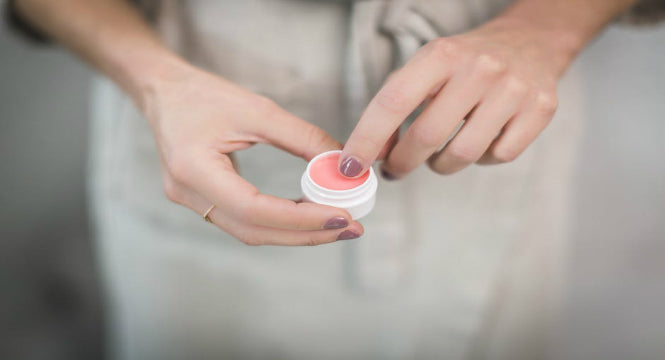Your Cart is Empty
FREE SHIPPING on US orders over $45. Save 25% With Code TAKE25 at checkout.
FREE SHIPPING on US orders over $45. Save 25% With Code TAKE25 at checkout.

If you have sensitive skin, then choosing skin care products can be anxiety-inducing - especially when it comes to selecting a moisturizer.
While the ideal moisturizing cream hydrates, a person with sensitive skin also has to worry also about calming their easily-irritated, sore, or rash-prone skin.
Painful reactions to skin care, food, environment stress, and other triggers are a hallmark of sensitive skin, and often times it is hard to pinpoint exactly what the problem ingredients are. All combined, you have a lot to deal with!
In this guide, we'll look at a few things to keep in mind when it comes to choosing a moisturizer for sensitive skin, including what to look for and what to avoid.
Many companies refer to “harnessing the power of Mother Nature” and it is simply lip service as their products don’t fulfill their marketing promises when ingredient lists are carefully consulted. Natural nourishment from real botanicals, with less harsh chemicals (that pose an irritation risk) should be important requirements for all consumers, but especially so for those who have sensitive skin.
Sensitive, rash-prone skin becomes blotchy, itchy, and bumpy, so when it comes to the face, the first need is typically to even out the complexion color. Other key concerns are hydrating dry patches and protecting the skin barrier from outside irritants.
Fatty acids are crucial in sensitive skin care products. You might see fatty acids listed as linoleic acid (omega-6s); oleic acid (omega-9s); palmitic acid (omega-7s) and stearic acid (which lets water and oil mix). Fatty acids improve the skin's natural oil barrier, reduce inflammation, and can yield youthful, plump, hydrated skin.
Fatty acids are also the key components of natural oils and butters, found in varying ratios depending on the plant.
Some research indicates that a deficiency of fatty acids contributes to increased skin sensitivity. Studies have found that consuming borage, evening primrose or flax seed oils reduced skin irritation and sensitivity. In addition to consuming omega fatty acids, topical application is an effective delivery method.
Aloe vera is one of the best known plants in skincare, long used to soothe irritation and protect. Aloe vera is tolerated well by most people, and studies have confirmed it's ability to help heal burns and sooth mild skin irritations such as acne and psoriasis.
Don’t be frightened by the word “acid” because hyaluronic acid isn’t irritating, harsh, or skin-stripping at all; in fact, it’s one of the best humectants around, which means it is capable of attracting and holding environmental moisture. That hydrating ability will help your skin look plump, youthful, fresh, and free of irritation.
Natural oils like those derived from pistachio, sunflower, macadamia, olive, and avocado are great for sensitive skin. These are packed with vitamins, minerals, antioxidants, and essential fatty acids.
Shea, mango, cocoa, and mowrah butters are ideal in body creams for dry, sensitive skin. In case you haven’t heard yet of mowrah butter, it is a gentle, natural, and effective skin (and hair!) conditioner. It’s also high in fatty acids including, linoleic, oleic, palmitic and stearic acids.
In addition to the natural moisturizers and humectants above, there are some plant extracts you might want to keep an eye out for as well. These plants and herbs have properties that help sooth, calm and protect sensitive skin types.
The resurrection plant (Haberlea rhodopensis) has a remarkable way of coping with moisture loss. It survives under the driest conditions, then “resurrects” itself with just one tiny drop of water - so imagine what it can do for dry, sore, flaky sensitive skin! It protects skin membranes and shields skin lipids from oxidation. The result is skin with refined texture and a healthy glow.
Research is still in its early stages, but there is some preliminary evidence that the resurrection plant has antibacterial, anti-fungal, and anti-aging properties.
Prickly pear seed oil, also known as cactus oil, is full of nutrients, including Vitamins A, B, and E, as well as minerals, including magnesium, manganese, copper, phosphorus, potassium, and iron. Prickly pear seed oil has an amazing fatty acid content of linoleic, oleic, palmitic and stearic acids.
All of this makes it a nutrient-rich, gentle, hydrating, and anti-aging powerhouse!
Vitamins A, B, and E are essential nutrients and powerful antioxidants, but you may not be as familiar with the importance of prickly pear oil’s minerals so we’ll break them down for you:
Take a holistic approach to your sensitive skin care moisturizer. Facial creams and serums should have more pure, gentle ingredients that come from the earth than those created in a lab. It can't be said often enough that beauty comes from the inside out.
Skin reflects your overall health, so if you have sensitive skin, it is even more important to follow this general, but critical, skin care advice: eat healthy foods, get enough exercise, get plenty of sleep, drink at least two liters of water per day, and manage your stress.
One caveat: be mindful that some medical skin conditions, such as rosacea, eczema, and allergic contact dermatitis, can mimic the symptoms of sensitive skin. Consult a dermatologist if you have questions. Natural, gentle, non-irritating ingredients that nourish, hydrate, and protect the skin are best; harsh chemicals are to be avoided.
If you can manage to make these changes and put your new knowledge of sensitive skin-safe ingredients to work, you will see a glowing complexion (and not from bright red blotches) looking back at you in the mirror when you do!